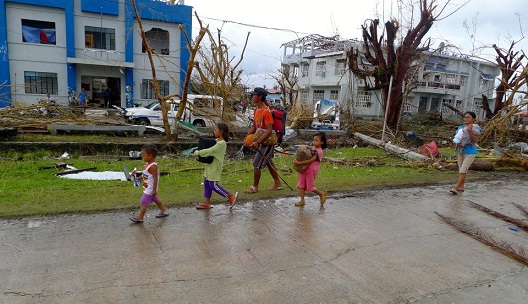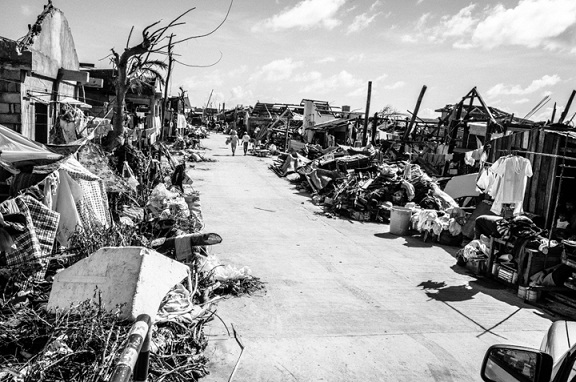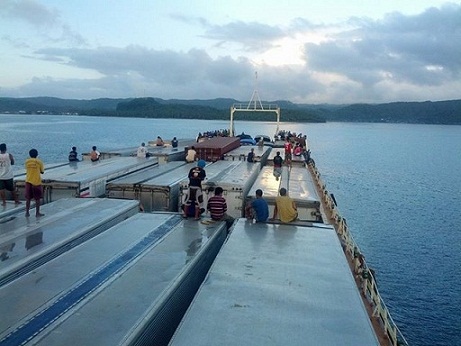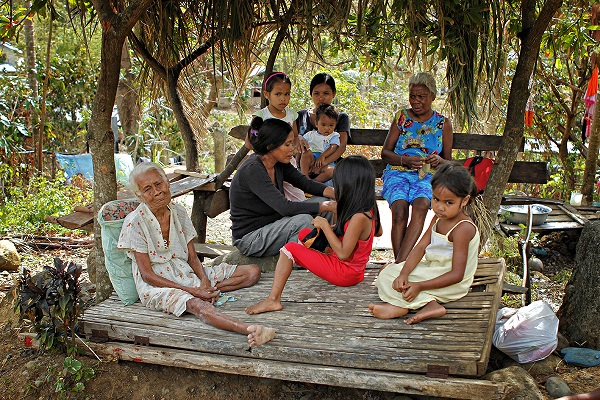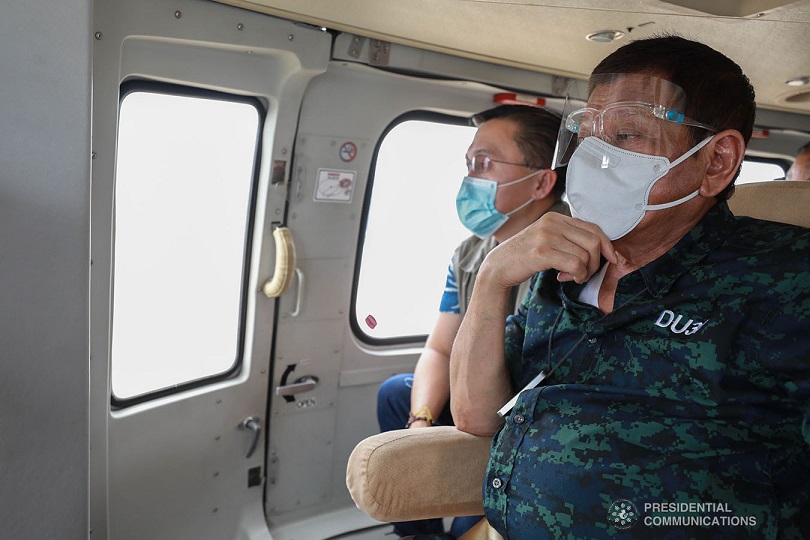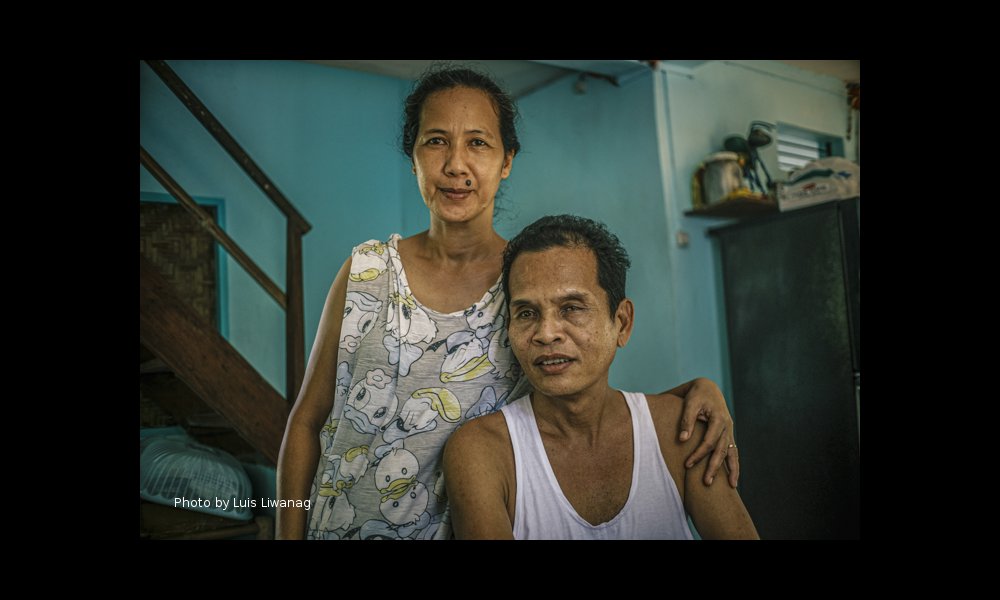Text and photos by JOSE BAYANI D. BAYLON
IMMEDIATELY upon landing it became obvious to me that while there was a semblance of order, this was fragile because three days had passed and no relief had been delivered to Guiuan in Eastern Samar.
Guiuan was the first to be hit by typhoon Yolanda Friday morning. If you look at a map, you will see that parts of Eastern/southern Samar actually protect Leyte from the Pacific Ocean.
This medical/humanitarian trip to Guian, which hosts Nickel Asia’s non-operating mine site on Manicani island, was the idea of Nickel Asia chairman Manuel Zamora. He had wanted it Monday but we needed time to do the basics for the trip- getting doctors, buying medicines, buying generator sets, and getting permission to fly.
I was outside Farmacia Fatima across the Philippine General Hospital Tuesday 5:30 a.m. to pick up two boxes of anti-tetanus medicines and a box of 2000 disposable syringes. At 6:30 a.m. I was with PGH doctors Mike Tee, Bryan Gilbert Lim, Ferdinand Luis Suarez and pathologist Maria Cecilia Lim and we were driving to the Subic Air hangar at the domestic terminal. By 7:30 am on Tuesday we were airborne and after one and a half hours we were circling Guiuan to check if the runway — built by the Americans and still in excellent shape! – was free of debris. We were down on the ground by nearly 10 a.m.
Driving around town I saw maybe 999 out of 1000 houses with roofs blown away — the only lucky one being a small house built between two larger ones and which was protected from the winds.
Talking with survivors, the stories were hair-raising:calm as of midnight Thursday, then howling winds by 4 a.m Friday, with howls that did not let up for three hours and were as strong as an airplane’s jet engines. No wonder people claimed they thought they were going to go mad,especially after seeing their roofs blown away followed by almost everything they possessed.
At light of day, around 7a.m, when the winds ceased, they saw the damage…and started counting the dead, wounded and damaged.
What’s terrible is that Guiuan has island barangays such as Victory, a flat island with trees and shantie. I am told that many families on that island are missing.
Of course, no relief has reached those islands as well. To do that, air drops from helicopters will be needed, and fast. There are small craft, but when the seas are rough, using the fishermen’s boats may not be a good idea.
The antibiotics that the PGH doctors brought with them were used up at the Immaculate Concepcion hospital within an hour of their arrival.
I do not think any local government unit is ever prepared for something like this, and for the Guiuan LGU this is more than a Herculean task of rebuilding. In the meantime, the peace and order situation is critical, and that is tied into how quickly food and medicines get to the area.
Also, since a few more typhoons are expected till year end, if the people of Guiuan do not find a way to get their roofs fixed, or get a typhoon shelter up and running, they are condemned to suffer the impact of more rain and wind and even sun and we can just imagine what the consequences on their physical and mental health would be.
At the Guiuan airport, while I was standing around with the PGH doctors awaiting the arrival of our King Air aircraft that was to take us back to Manila, I espied out of the corner of my eye an old man, white haired and wearing a dark blue/grey sando, as he slowly approached us. The look on his face told me that he was going to ask me something, and I figured what it would be related to — our departure. Still, he just stood there for a while, maybe waiting for the right moment – the right pause in our group conversation, the right eye contact — and when that came, he walked a few steps towards me and said “Sir, pwede po ba kaya sumabay sa inyo ang asawa ko .Can my wife hitch a ride with you)?”. I must admit that the exact question floored me.
I apologized, saying the plane was full, with all 12 seats taken. My response caused him to hang his head as he shuffled back towards the place near the damaged airport fence and gate where he was standing with others, all holding on to traveling bags and plastic supots (bags).
Trying to make light of the exchange I said to myself: “He didn’t even seem to care to find out first where we were going, he just wanted us to take his wife!!”
But I felt deep inside the desperation to get out, to hop on the next available means of transportation out of Guiuan to any place where, surely, things are better than in the town that is virtually bereft of the structures and institutions that one expects to find in a community.
That’s the state of affairs, four days after Yolanda.
(The author is vice-president for communications of Nickel Asia Corp. He is also president ofPGH Medical Foundation.)
